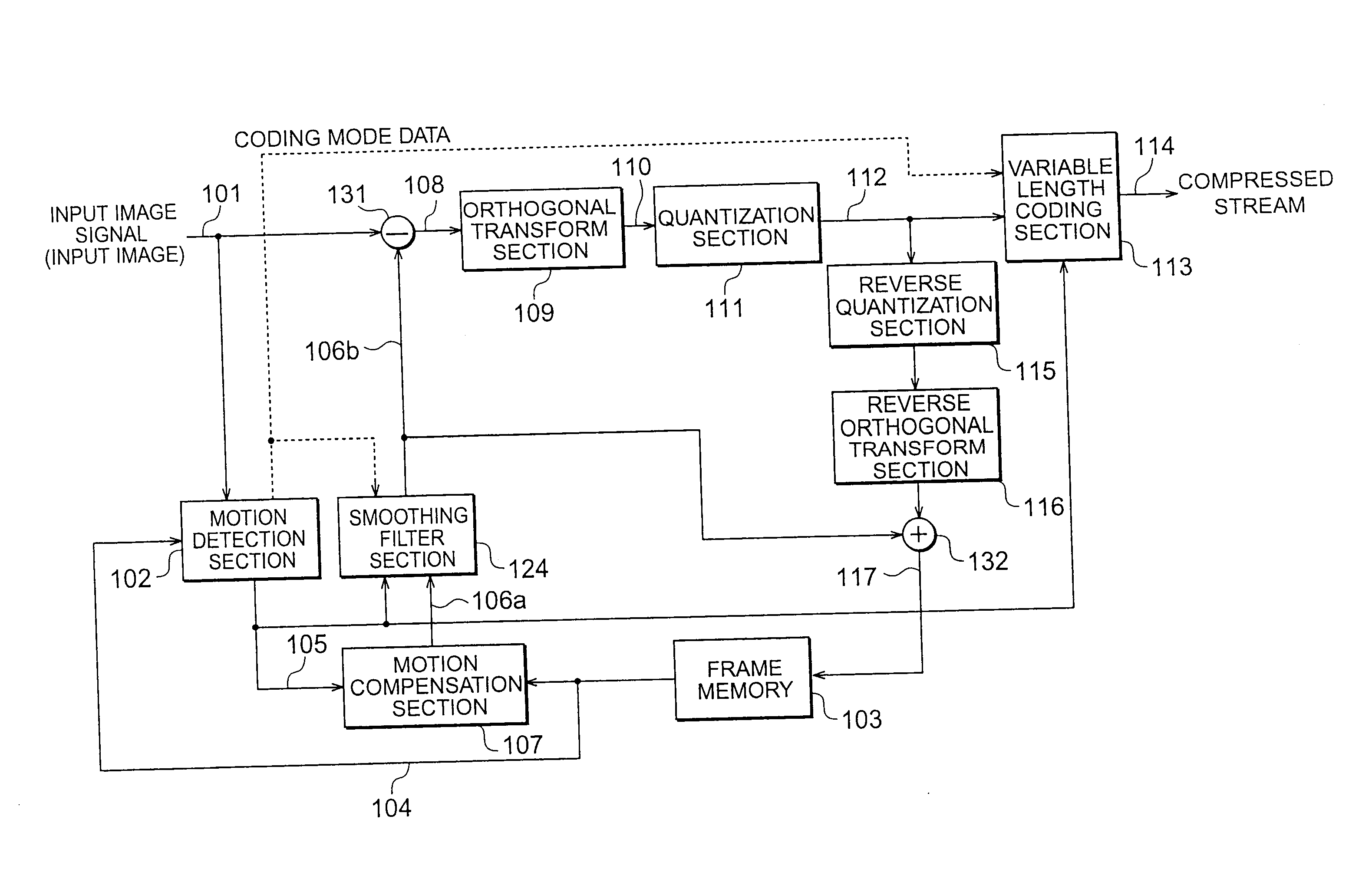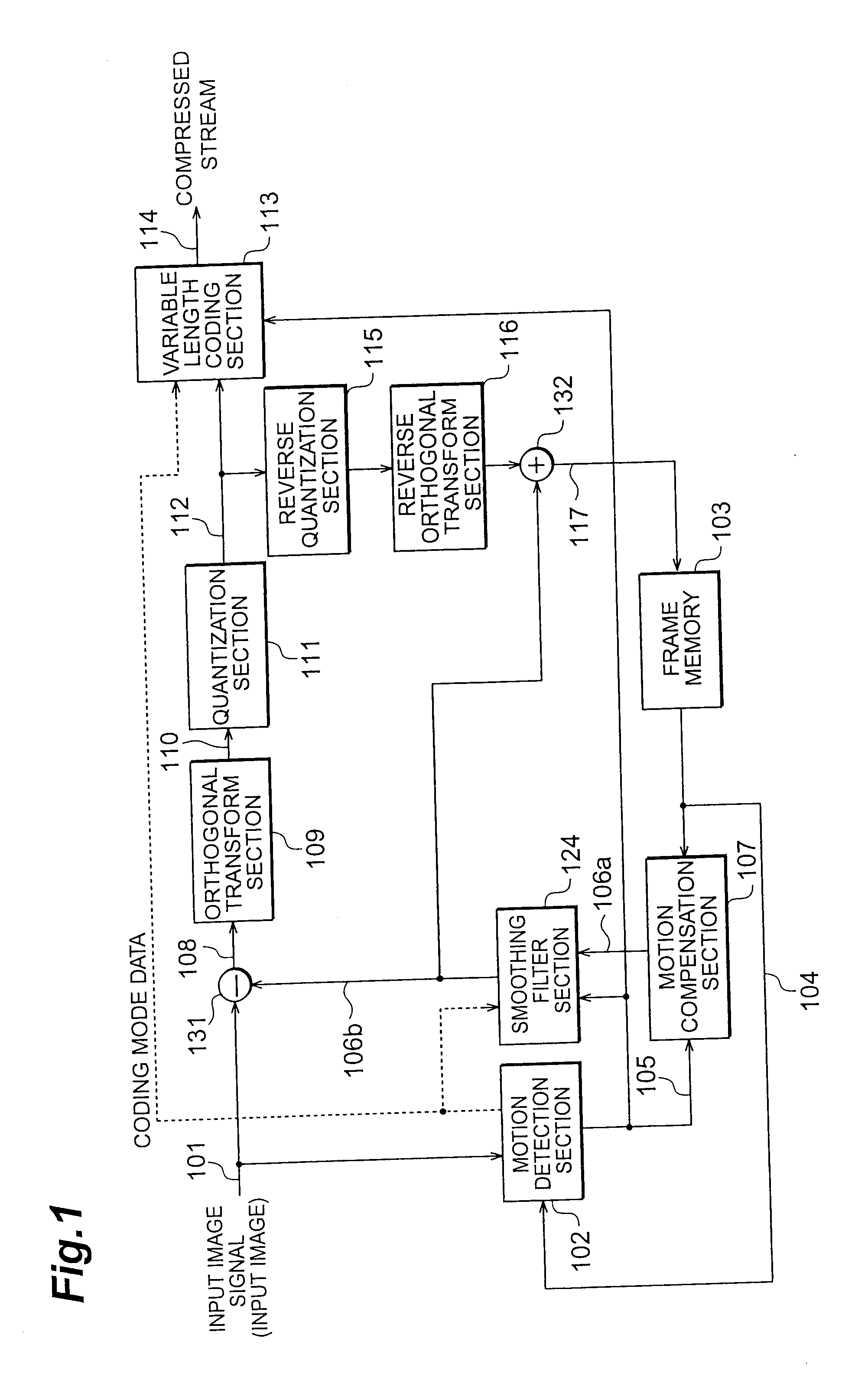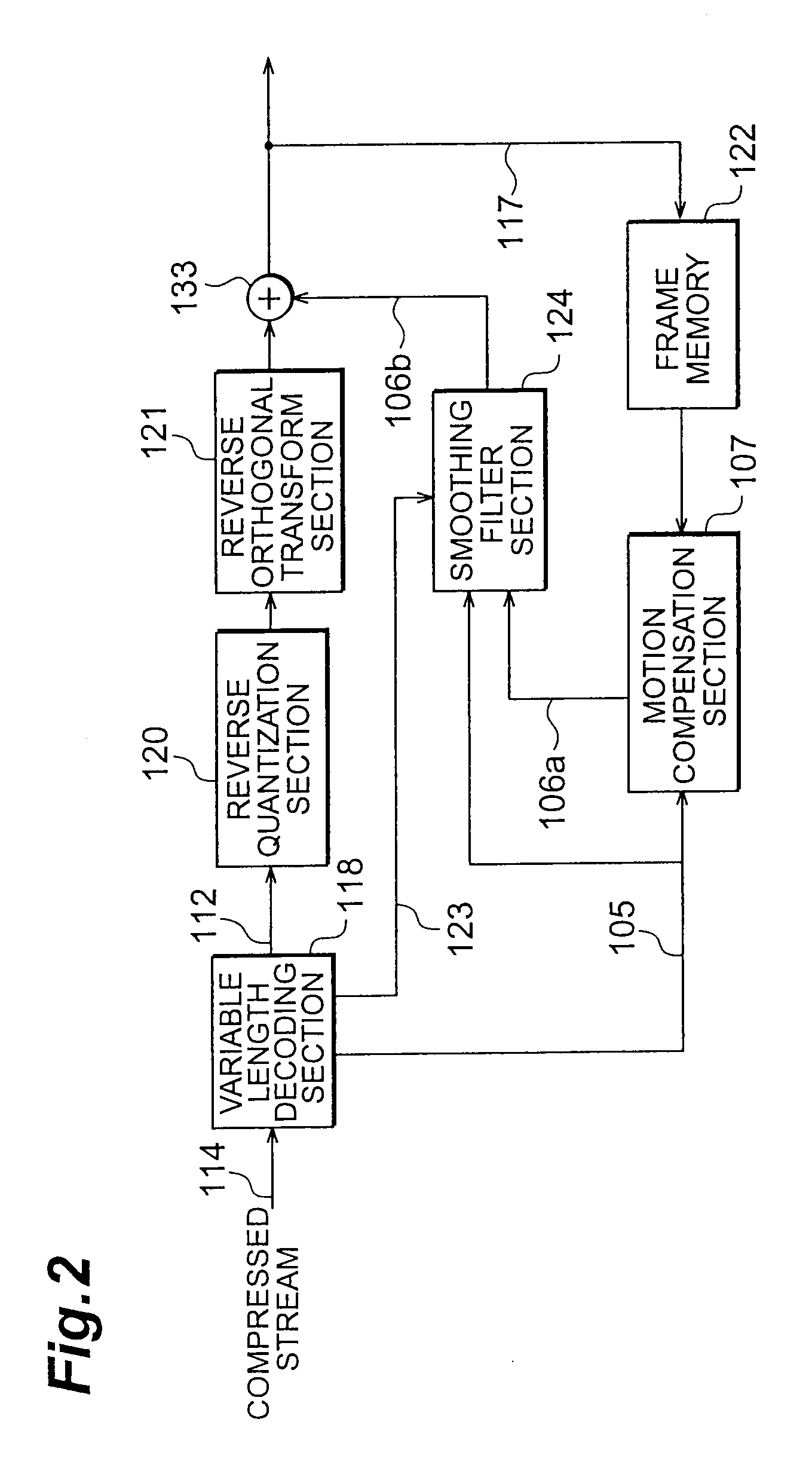Image coding apparatus, image decoding apparatus, image coding method, and image decoding method
a coding apparatus and image technology, applied in the field of image coding apparatus, image coding apparatus, image coding method, can solve the problems of discontinuous boundary, inability to re-constitution, and inability to achieve satisfactory rendition of residual signal, etc., to achieve the effect of improving the efficiency of low bit rate coding that employs interframe mc, suppressing discontinuous waveforms, and improving coding efficiency
- Summary
- Abstract
- Description
- Claims
- Application Information
AI Technical Summary
Benefits of technology
Problems solved by technology
Method used
Image
Examples
first embodiment
[0057]FIG. 1 is a block diagram showing the constitution of the image coding apparatus according to the first embodiment of the present invention, and FIG. 2 is a block diagram showing the constitution of the image decoding apparatus. The image coding apparatus shown in FIG. 1 performs efficient image coding on account of being constituted to reduce redundancy in a temporal direction by means of MC, quantify spatial discontinuity between individual MC blocks with respect to the prediction image obtained by means of the MC, and adaptively perform smoothing filter processing in accordance with the conditions.
[0058]The MC procedure of this image coding apparatus is substantially the same as the method described in the conventional example. An outline of this procedure is provided in FIG. 21 and an outline of the block matching processing employed in the motion vector detection is as shown in FIGS. 22A to 22D. However, the MC blocks can be defined by uniformly divided units into which m...
second embodiment
[0113]FIG. 12 is a block diagram showing the constitution of the image coding apparatus according to the second embodiment of the present invention, and FIG. 13 is a block diagram showing the constitution of the image decoding apparatus thereof. The second embodiment relates to an apparatus constituted by introducing the smoothing filter of the present invention described above to an image coding and decoding apparatus according to a compression coding system that applies the technique known as Matching Pursuits. Image coding systems that use Matching Pursuits include that disclosed by R. Neff et al, “Very Low Bit-rate Video Coding Based on Matching Pursuits”, IEEE Trans. on CSVT, vol. 7, pp. 158-171, February 1997. With Matching Pursuits, a prediction residual image signal f to be encoded can be rendered as per the following formula by using an over-complete basis set G prepared in advance that comprises n types of basis gkεG (1≦k≦n).
f=(∑i=0m-1〈si,gki〉gki)+rm(1)
[0114]Here, m is the...
third embodiment
[0131]A third embodiment of the present invention will now be described. The third embodiment describes another smoothing filter section. This smoothing filter section is a modification of the smoothing filter sections 124 and 224 described in the above first and second embodiments respectively, and because this filter simply substitutes for the smoothing filter sections 124 and 224, this filter can be applied to the image coding apparatus and image decoding apparatus shown in FIGS. 1 and 2 or FIGS. 12 and 13 respectively. The internal constitution is also the same as that in FIG. 5.
[0132]With the smoothing filter section according to the third embodiment, the block activity level calculation section 125 does not define the block activity level information with respect to the blocks but instead defines this information with respect to the block boundaries. Consequently, the filter can be controlled by uniquely allocating an activity level without the selection of an activity level u...
PUM
 Login to View More
Login to View More Abstract
Description
Claims
Application Information
 Login to View More
Login to View More - R&D
- Intellectual Property
- Life Sciences
- Materials
- Tech Scout
- Unparalleled Data Quality
- Higher Quality Content
- 60% Fewer Hallucinations
Browse by: Latest US Patents, China's latest patents, Technical Efficacy Thesaurus, Application Domain, Technology Topic, Popular Technical Reports.
© 2025 PatSnap. All rights reserved.Legal|Privacy policy|Modern Slavery Act Transparency Statement|Sitemap|About US| Contact US: help@patsnap.com



